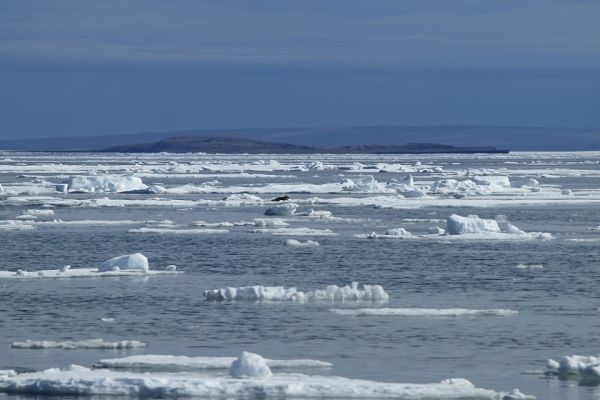In the Arctic, marine mammals such as belugas and bowhead whales rely on a quiet environment to communicate and forage. But as Arctic sea ice shrinks and shipping traffic increases, vessel disturbance could very likely impact their social behaviours, distribution and long-term survival, warns a new study led by University of Victoria marine biologist Lauren McWhinnie.
Published in the peer-reviewed journal Ocean and Coastal Management, the study calls for precautionary measures to minimize the negative impacts of increased vessel traffic in the Arctic—such as noise and ship strikes—as climate change brings a longer ice-free season.
“We can start by trying to apply the lessons learned from vessel management in heavily trafficked southern regions while we still have the opportunity to do things right in the Arctic,” says McWhinnie, a post-doctoral researcher in UVic’s geography department. “A voluntary restriction on vessel speed will reduce the likelihood of ship strikes and contribute to reducing noise levels. Other trial studies have shown that slower vessels pose less risk to marine mammals.”
By examining management plans from over 1,000 international Marine Protected Areas, the researchers identified and evaluated 14 vessel management tools to assess their potential suitability for use in an Arctic environment. After evaluating each tool, researchers recommend that at least two of these spatial tools are suitable for the Arctic: a voluntary exclusion zone (avoidance) and a voluntary speed reduction zone (slow down).
Continue reading at University of Victoria.
Image via University of Victoria.


